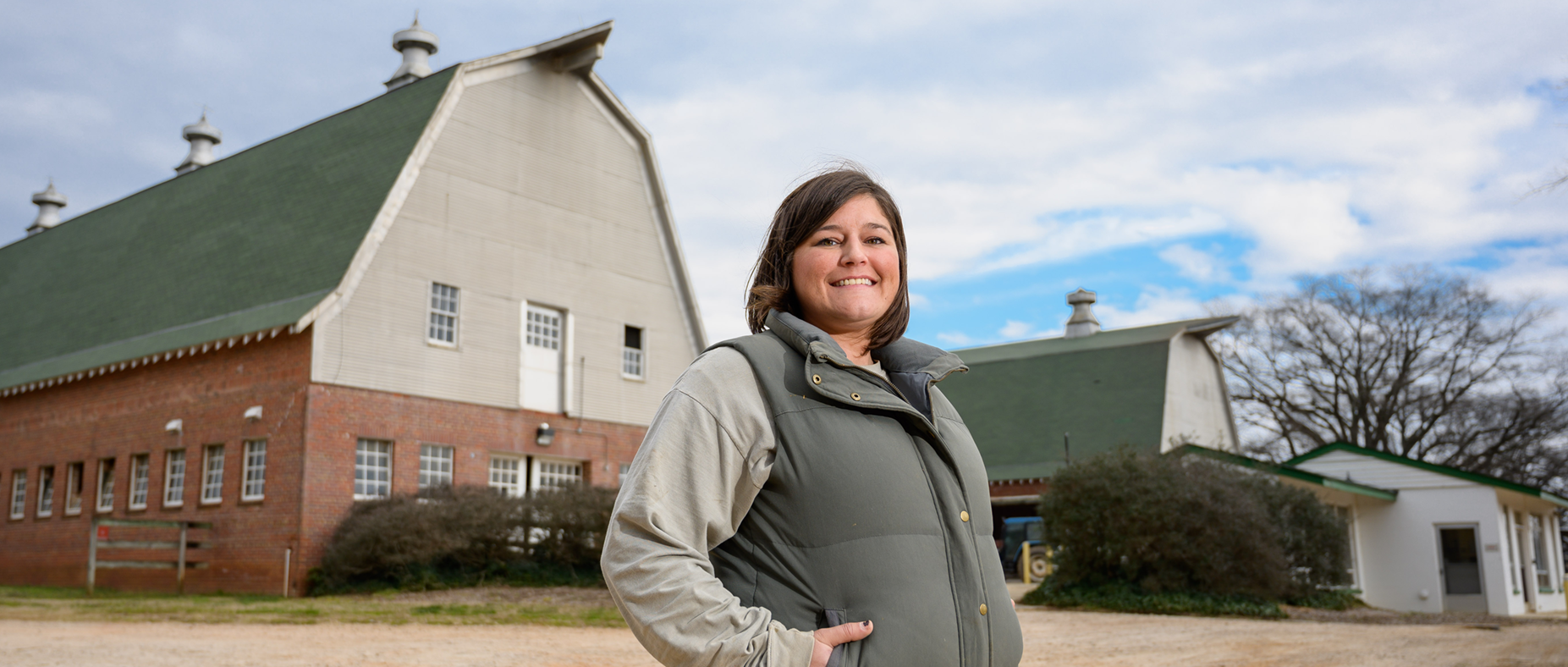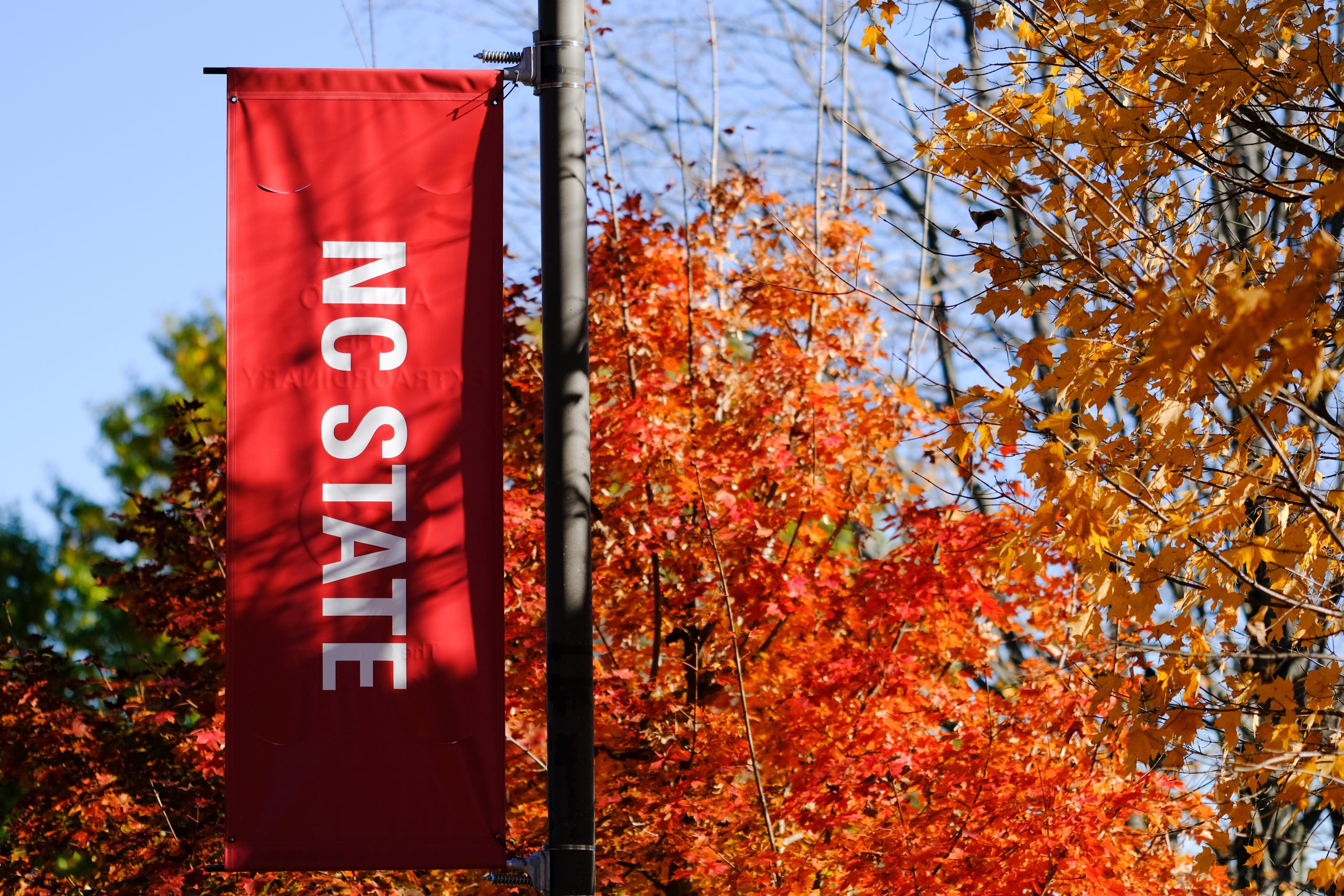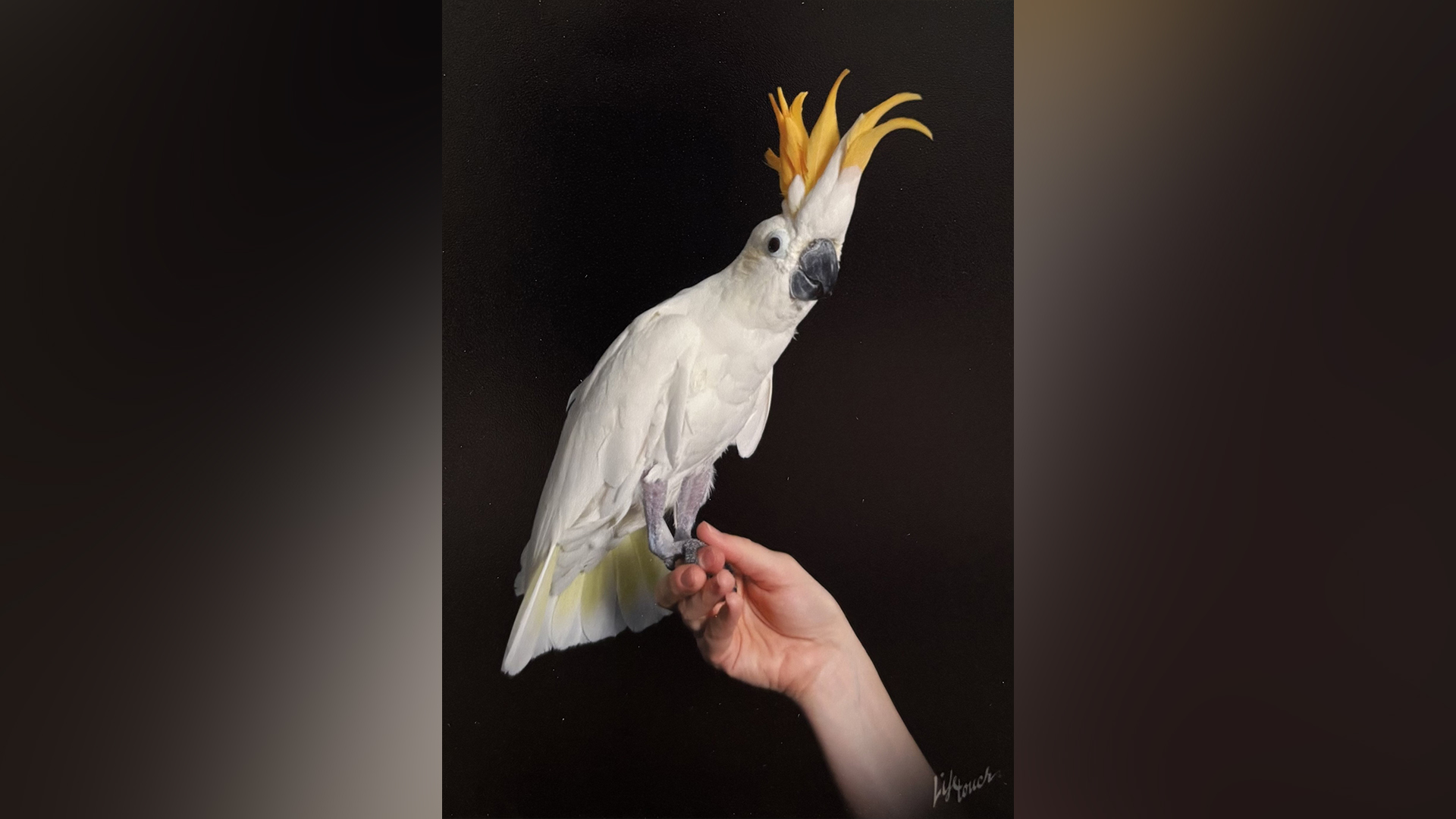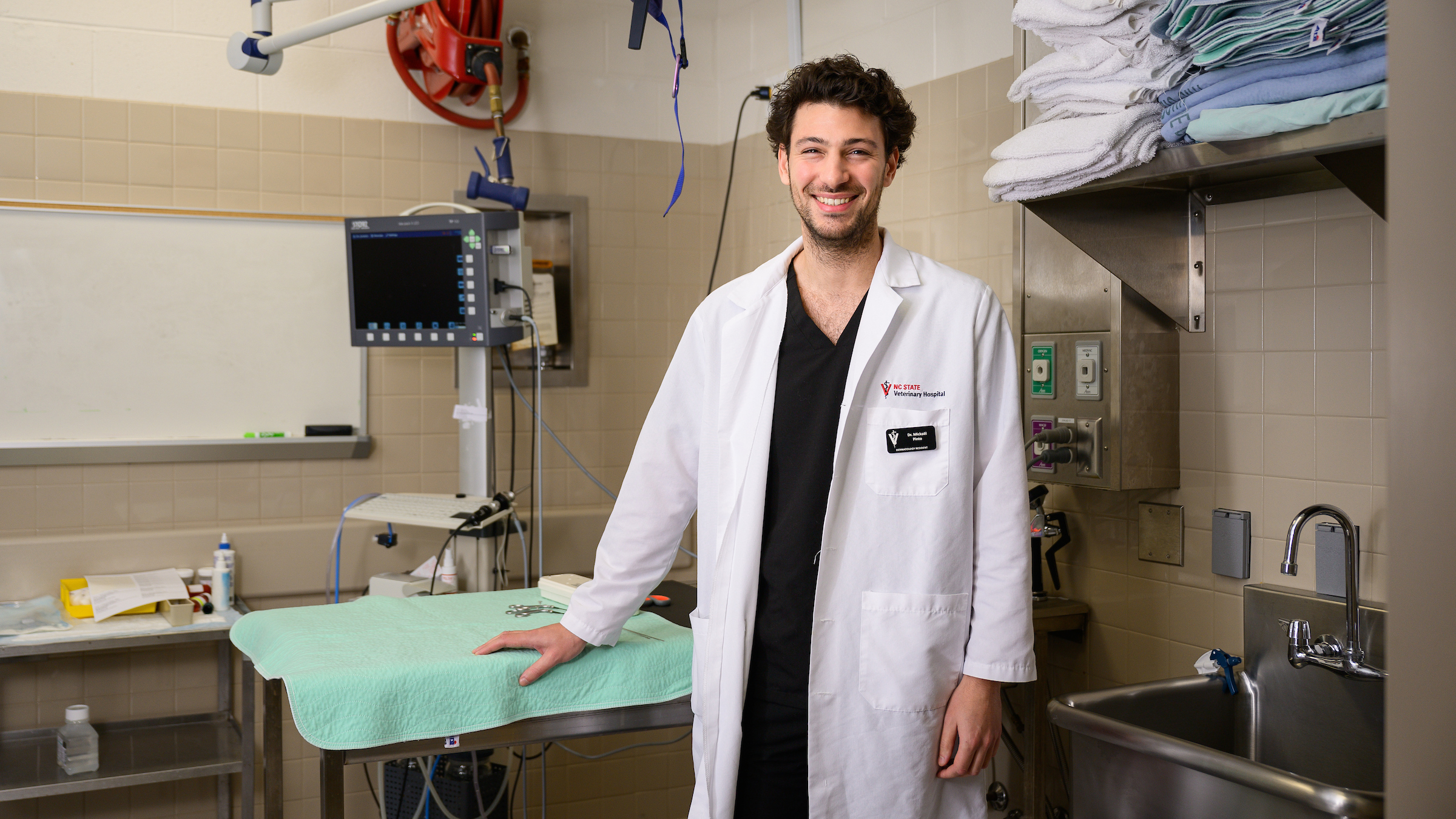Down on the Farm

Sara Beth Routh is out back. You’re never sure where.
She could be with a class that’s learning cow handling techniques, helping to calm calves while repeatedly scraping muck off the bottom of her well-worn dusty boots. She could be in a covered stall cradling a fussy newborn lamb in her arms that needs some bottle feeding.
She may be coordinating plans to take a horse up to the hospital for a blood donation. She could be somewhere welcoming the 5,000 day-old chicks that are delivered to her each spring and the 2,000 turkeys that show up in the fall. In the winter, she could be out waiting for an Angus cow to give birth. She may be working one-on-one with a student who wants more experience with ear tagging.
“There’s always somethin’,” Routh said with her instantly identifiable, friendly North Carolina twang while in the middle of a recent workday. “Somethin’, somethin’, somethin.’
She loves all the somethings. She thrives on them. She has a lot of them at the NC State College of Veterinary Medicine, where she has served as the director of the Teaching Animal Unit since the fall.
The 80-acre Teaching Animal Unit is backyard unlike any other. NC State is the only college of veterinary medicine in an urban environment that boasts a working farm mere steps from the classrooms and its state-of-the-art veterinary hospital. It has been a part of the CVM since it opened and remains as part of a strong commitment to supporting North Carolina’s still-vital agriculture industry.
Here, within the bucolic setting of rolling green hills, there are cows and horses and chickens and goats and lambs and pigs. Dairy cows produce milk that is sold at a regional co-op. Cows are bred.
But, first and foremost, this is a place for students.
Every single CVM graduate steps foot on the farm’s grounds at some point during their studies. It’s an open-air teaching lab where production management and husbandry techniques are honed, physical exams are practiced and the vital needs and odd quirks of farm animals are learned.

It’s called the Teaching Animal Unit but no one calls it that. The clinical-sounding name has always been shortened to the TAU. Students consistently and fondly cite their TAU experiences as some of the most enjoyable during their time at the college. Several say that when choosing between veterinary schools the TAU stuck out in their mind when committing to NC State.
As a teaching tool, it has proven indispensable.
“I want this place to be like a home away from home for students in a sense,” said Routh. “I think that they need to feel like the TAU is as much theirs as anybody else’s and to be proud about it.”
Routh is proud of it. She oversees the grounds, works closely with instructors and clinicians and monitors the menagerie of animals, all with unique needs. The job is very much a balancing act. Routh is a farm manager, administrator, pasture maintainer, machine operator, agriculture industry insider and educator all in one.
“I have an open-door policy and the TAU has an open-door policy. That is very important to me,” said Routh. “They need the in-your-face experiences. When you’re learning how to put a halter on a horse, it’s always more than just putting it on. It’s how the horse acts around you.”
She was made for this kind of work. A Kernersville, N.C., native, Routh was never interested in soccer or dance like her older sister, so she rode horses from a young age at Flintrock Farm in Reidsville. Routh’s parents started what is now the oldest 4-H Club in North Carolina at Flintrock, Routh said.
Her parents had friends at church who showed lambs and Routh wanted to be just like them. She has never been afraid of getting dirty.
“Bless my mom, I could never stay clean,” said Routh. “I was just that child. I’d be out jumping in mud puddles versus having my hair and nails done.”
Once she got into riding horses, she couldn’t be kept away. She was the farm every afternoon and wanted to be an equine veterinarian until she became more interested in livestock and management while as an undergraduate at North Carolina A&T University.

There, she earned a bachelor’s in animal science and worked on swine and poultry research projects. She eventually earned her master’s in agricultural education from A&T with a focus on parasite management programs for livestock. After her master’s, she started work as the only small ruminant and equine-specialized livestock agent with the NC State Extension.
“I knew I liked to teach, but I never wanted to be in a classroom,” said Routh, who spent two years teaching high school animal science before shifting to extension work. “I think the thing with the extension was that it was helping other people become successful within what they are most passionate about. If they come back and say that they saved half of their babies that year when they had lost all of them the year before.”
Routh brings that enthusiasm for the agriculture industry to her TAU job. She understands the industry. She has been a producer herself and has also worked with producers while she was on the extension side.
She has seen what producers want out of their veterinarians and shares that depth of knowledge with CVM students.
“The livestock industry want vets to respect them, and that’s important for students to understand,” said Routh. “Your client may have done this for 20 years and you need to be able to listen to them. You don’t want to convey the attitude that they are not a vet and you feel they don’t know what they’re talking about.”

Routh is still involved in livestock production. When she leaves the TAU each day, she goes home to her own farm. She lives in a 1920s farmhouse in on nearly 10 acres near Pinehurst. She shares the land with about 60 goats (her favorite animal), livestock guardian dogs, two pet pigs and a mini horse named Sammy who is blind in one eye.
“That’s not really work for me,” said Routh. “It’s my downtime.”
Her time now is mostly spent refining her own vision for the TAU. She wants to modernize the design to make it even better suited for production. She wants to take a hard look at how to maximize the space she’s working with now.
And she wants students to have a say in what improvements would benefit them the most as they prepare to head out to care for livestock living on some other green, rolling hills.
“There are students who pick up on the little things so well when they’re down here,” said Routh. “They look for the subtle things, the changes in the attitude of the animal. I’ve already looked at students and said to myself that they’re going to go somewhere. They are going to be a good vet.”
~Jordan Bartel/NC State Veterinary Medicine
- Categories:


